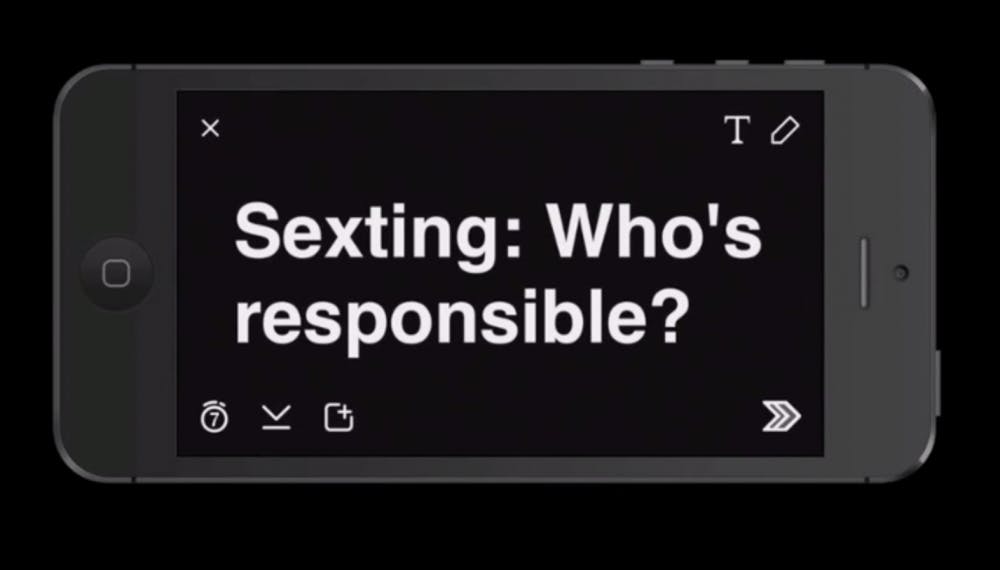Boobs. Jennifer Lawrence. Kate Upton.
These are a few of the Internet’s favorite things. Any one of these is enough to get a rise out of a message board, so what happens when you combine them all?
You get chaos and FBI involvement. You get naked bodies attached to famous faces and a nationwide guilty conscience for looking at them.
The Fappening is now, and it has taken the Internet by storm. On Sunday, leaked nude photos of these women, along with those of Kim Kardashian, Selena Gomez, and around 100 other prominent female celebrities emerged on 4chan and immediately began circulating around the web. It is believed that the hackers responsible may have gained access to the celebrities’ iCloud accounts through the Find My iPhone app.
This has already spurred many debates about cloud safety, celebrities’ entitlement to privacy and the ethics of sexting. Despite the obvious appeal of nude women, the public response has been for the most part respectful. People are calling out both the criminals who violated these women’s privacies and those who choose to take advantage of the crime. Social media sites are filled with users urging their friends and followers to refrain from viewing the photos, as doing so constitutes a further breach of privacy.
Yet every article or column reviling the viewers and hackers has commenters insisting that these women should have known better than to take nude photos. "If you’re in the spotlight, you can’t expect your private life to stay private." Considering our obsessive fascination with celebrities, this might be an inescapable fact. They’re just like us! They buy groceries! They go to the gym! Now it has been confirmed that they, too, have nipples!
Many extend this view further with an even more hardline stance on sexting. "Celebrity or not, if you take an explicit photo, you are fully responsible for the consequences."
This is the same, problematic advice that I and most other teenagers received. I was taught about the horrors of sexting in middle school through a cheesy video with dramatic music and girls gazing regretfully at pink flip phones. Like my education on drugs and alcohol, the extent of my sexting education was "Just Say No."
It’s simply unrealistic. These are the sentiments of concerned parents who have seen too many news stories about “sexting rings” and constantly lament the loosening morals of each new generation. Obviously, by abstaining from taking naked photos in the first place, any risks to future employment or reputation are eliminated. But we know abstinence-only doesn’t work. Communicating sexual intimacy is a part of culture—it always has been—and it is here to stay. The same men who composed erotic letters to their lovers in the Victorian era would be snapping dick pics today.
As technology becomes increasingly pervasive in our society, it is incorporated into aspects of our lives that previous generations never foresaw—and are perhaps appalled by. We are redefining not only how we interact with the world, but also how we interact with each other. We are changing the dynamics of communication, of friendship and of sexuality.
Yes, this creates new permanent consequences for us to worry about. Young adults in modern sexual relationships must be wary of their virtual histories as well as sexually transmitted infections and pregnancy. While the latter two present themselves immediately, a nude photo can pose problems decades later.
Thankfully, most people are not celebrities. We don’t have the eyes of the world on us and we—hopefully—don’t have strangers trying to guess our iCloud passwords. What we have, which the victims of Celebgate did not, is the ability to make conscious choices about where our information travels. Most leaked nude photos of regular women are not a result of hacking—they’re a result of trusting the wrong people.
The best we can do is protect our sensitive information and teach others how to as well. If sex education stresses condom usage, it should at least advise on password protecting explicit images. If it teaches the importance of consent and trust, it should definitely emphasize their significance in a digital context.
Those who choose to sext should be careful about it—just as with any other sexual activity. Password protect nudes. Avoid text messaging and instead use applications with added security measures. Only send images to people you trust and ask yourself whether you can trust them later. Alternatively, if you don’t know them or want to avoid future recognition, anonymize the photo. Hide your face and don’t show tattoos.
Nudes are a reality of modern communication—a subset of selfies, but intended for a private audience. Unfortunately, it is a reality that our culture treats nude photos as highly inappropriate. This notion is far less prevalent now than in the past, as evidenced by the nationwide show of support for the victimized women, but it is still widely perpetuated. While leaked photos are not the owner’s fault, the resulting publicity can take an unfair toll on their reputation, and, in turn, their job prospects, relationships and emotional state. Although sexy images and texts are exchanged without consequence far more often than they are leaked, it’s still better to be safe.
If you’re going to sext, remember to use protection.
Pallavi Shankar is a Trinity sophomore. Her column runs every other Friday.
Get The Chronicle straight to your inbox
Signup for our weekly newsletter. Cancel at any time.

